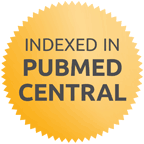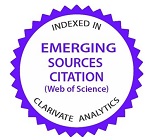Abstract
Gender medicine is a multidisciplinary science and represents an important perspective for pathophysiological and clinical studies in the third millennium. Here, it is provided an overview of the topics discussed in a recent course on the Role of Sex and Gender in Ageing and Longevity. The paper highlights three themes discussed in the course, i.e., the interaction of gender/sex with, i) the pathophysiology of age-related diseases; ii), the role of genetics and epigenetics in ageing and longevity and, iii) the immune responses of older people to pathogens, vaccines, autoantigens, and allergens. Although largely unexplored, sex and gender are modulators of disease biology and treatment outcomes. It is becoming evident that men and women should no longer be considered as subgroups, but as biologically distinct groups of patients deserving consideration for specific therapeutic approaches.
Recommended Citation
Candore, Giuseppina; Accardi, Giulia; Aiello, Anna; Baggio, Giovannella; Bellini, Tiziana; Calabrese, Vittorio; Carreca, Anna Paola; Carreca, Ignazio; Masucci, Anna; Cattaneo, Monica; Dato, Serena; Di Bona, Danilo; Fabris, Luca; Gambino, Caterina; Di Lorenzo, Gabriele; Franceschi, Claudio; Ligotti, Mattia Emanuela; Manfrinato, Maria Cristina; Puca, Annibale Alessandro; Tamburello, Martina; Vassallo, Roberta; and Caruso, Calogero
(2024)
"Sex and Gender in Ageing and Longevity: Highlights from an International Course,"
Translational Medicine @ UniSa: Vol. 26
:
Iss.
1
, Article 2.
Available at:
https://doi.org/10.37825/2239-9747.1049
Creative Commons License

This work is licensed under a Creative Commons Attribution-Noncommercial-No Derivative Works 4.0 License.
Included in
Health Communication Commons, Life Sciences Commons, Medicine and Health Sciences Commons




